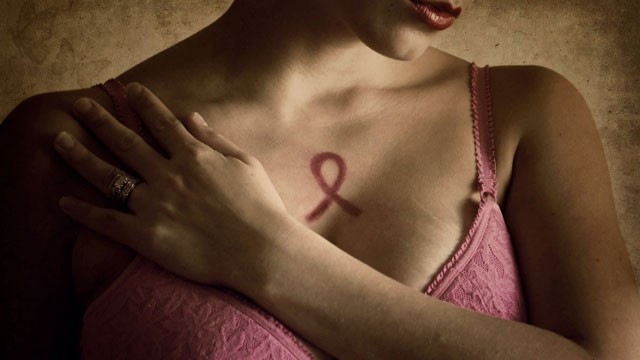Men Struggle With Wives' Breast Cancer in Silence

Seventy two hours after Elissa Bantug's mastectomy, she felt broken. She was only 25 years old, but she had lost both breasts and her strawberry blond hair to cancer. Drainage tubes still hung from her chest to remove excess fluid from the operation.
In that moment, she just wanted to have sex with her boyfriend.
"I just needed something to make me not feel so broken," said Bantug, who is now 31. "Anything to make me feel beautiful."
But instead of responding to her advances, Bantug said, her boyfriend pushed her off of him and told her it was crazy for her to have sex when she was so sick -- and so obviously in pain.
"It was awful," said Bantug. "It ended in a screaming match with doors being slammed."
Bantug said it was just one of the instances in which she and her boyfriend -- to whom she is now married -- didn't communicate well during her cancer experience. He had a hard time figuring out when he was supposed to let Bantug make decisions and when he was supposed to help her decide what to do. He didn't tell her how afraid he was.
When they did have sex, Bantug's boyfriend didn't know where to put his hands or whether putting them certain places would draw attention to Bantug's scars and upset her. He thought he should sleep in the guest room because he thought she needed the space to heal, but that made her worry that he was pulling away.
Now, Bantug knows better than to stay silent about these things, and it's her job to make sure cancer patients at Johns Hopkins Medical Center do, too. She runs the hospital's Breast Cancer Survivorship Program, where it's her job to answer the questions cancer patients and their spouses feel silly asking their oncologists.
Angelina Jolie Takes Action Against Cancer Risk Watch Video
Double Mastectomy Just the Beginning for Jolie Watch Video
Jolie to Remove Ovaries After Double Mastectomy Watch Video
Couples want to know about what to eat and how to tell their children about the diagnosis, but they also want to know about nipple sensitivity, body image and whether cancer patients will be able to have an orgasm again, she said.
Even though breast cancer is primarily about the woman fighting it, psychologist Jennifer Wolkin said conversations about relationships inevitably come up in her sessions with patients.
In addition to finding themselves thrust into the unfamiliar role of emotional supporter, men feel they need to deny their own feelings to be stoic, said Wolkin.
"They give off an air of self-assuredness to protect women, but, ironically, it comes off as rejection," said Wolkin, who works at the Joan H. Tisch Center for Women's Health at NYU Langone.
She said men often lack support centers and have to journey through cancer alone. If they show their feelings, they worry it somehow makes them weak. Sometimes, a man's libido can even drop -- not so much because he's no longer attracted to his wife, but because of the uncertainty and unknown associated with the situation and her body.
But it doesn't have to be that way. Men and women just need to communicate and ask for help when they need it.
"Mastectomy is horrific, but I think it has potential to offer this place where a man and woman could really significantly grow in their relationship," Wolkin said.
It's important for both partners to be as informed as possible about what's going to happen during breast cancer treatment and recovery, said Lynn Erdman, the vice president of community health for Susan G. Komen for the Cure.
Erdman, a nurse who specializes in oncology, said men have their own set of concerns and emotional issues when it comes to having a spouse with breast cancer, but they often don't feel comfortable talking about them because they think it makes them selfish. She said many hospitals now offer support groups for men as a safe place for them to ask questions that would otherwise seem taboo.
"What we hear a lot of times is, 'What's the breast going to feel like after the implant is in and the tissue in it has been removed?'" Erdman said. "'If I hug her, is it going to hurt her?' 'Will it change our sex life?'"
"I've seen it often bring couples much closer together," she said."It's part of going through the cancer battle together."






